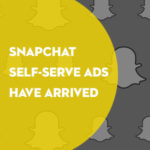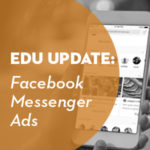In terms of inbound marketing, Lynn University was the big winner in the third and final Presidential debate. Page views of Lynn University’s web site increased 170% over the last month (from Alexa.com). That is a large increase. Think about all of the additional people that will come to Lynn’s storefront because of this special event. Much like a retailer preparing for a big event (think Macy’s in NYC on Thanksgiving), the proper amount of pre and post event planning is crucial to capitalize on the event fully. Your special event doesn’t necessarily need to be as big as a presidential debate, either. For example, Gustavas Adolphus College in Minnesota recently hosted a royal visit from the King and Queen of Sweden. President Obama recently spoke at Barnard College’s commencement ceremony in New York.
In terms of inbound marketing, what can you do to make the most of an important event?
Pre-Event
- Alumni: Get them involved by alerting them before everyone else; invite them to participate in person or virtually; ask them to help you spread the word.
- Media: Make it as easy as possible for the media to find out about event information on your web site.
- Leverage the power of the opportunity: Positively associate your brand name with the event wherever possible (from banners to radio spots).
- Social Media: events are a social media dream – use this as an opportunity to create engaging social media posts, ask questions, and involve individuals in the event pre-event.
During the Event
- Twitter: Create a specific hashtag for the event and encourage as much participation as possible.
- Live stream: Engage your audiences by allowing them to view the event without having to be there (if this is allowed by the presenter/venue).
- Photos: Encourage people to post their specific event experiences and photos to Flickr.
Post-Event
- Landing pages: Encourage individuals to sign-up to get information about upcoming events by creating a landing page to get their email addresses and names so that you have permission to communicate with them in the future.
- Blogging: Capture content (photos, audio, video) and reflect on your experience so that you can create a series of blog posts following the event.
- Thank them: Thank your alumni, current students, and other audiences for their participation and contributions.
Questions for you:
- Are there any significant events that your campus will be hosting?
- How can you capitalize on these events?







